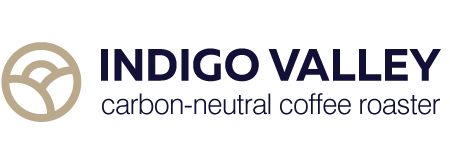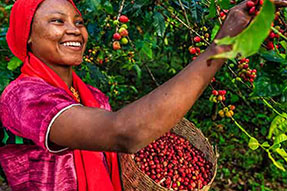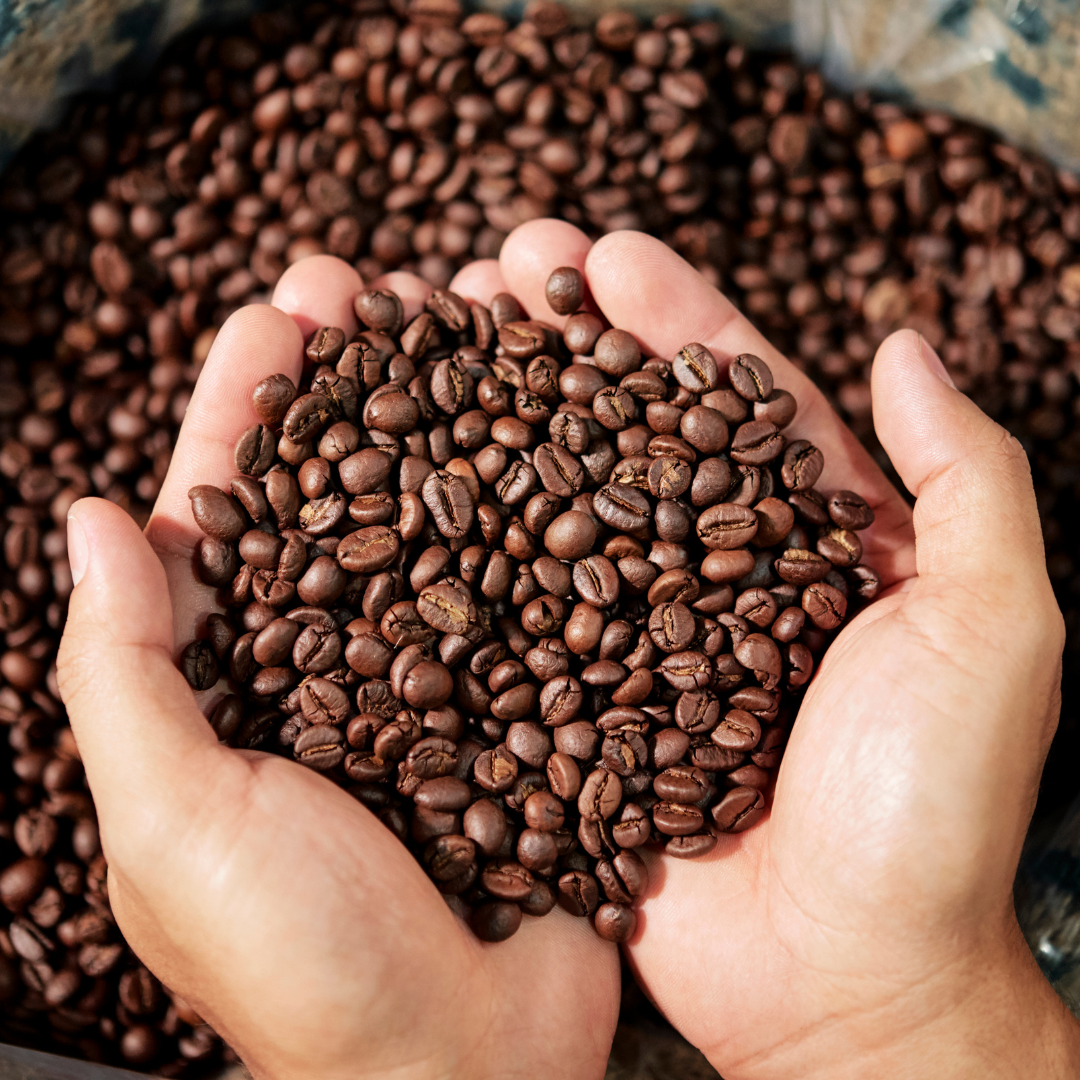
We’ve done it again!
But why does it matter that our coffee is sustainable and ethical?
In an era where climate change demands urgent action, it’s common to focus on personal contributions like effective recycling or choosing electric cars. Yet, have you considered the environmental impact of enjoying your daily cup of coffee?
With over 2 billion cups consumed globally each day, the $90 billion coffee industry plays a significant role in our lives. Many suppliers now brand their coffee as sustainable, emphasising their commitment to doing good. But what does this entail, and are these processes transparent?
At Indigo Valley Coffee we aim to inspire coffee drinkers to choose better, higher-quality coffee that comes from a transparent and ethical supply chain. It’s about enjoying your brew while making a positive impact on the environment.
Sustainability Challenges in the Booming Coffee Industry
As the coffee industry continues its impressive growth worldwide, now valued over a staggering $90 billion, it’s tempting to assume that expansion brings only positive outcomes. However, the rapid surge in businesses vying for a share of this lucrative market has led to shortcuts that can compromise the very essence of that delightful cup of coffee. Sadly, this growth can come at the expense of forests, biodiversity, and the well-being of coffee farmers.
A striking 25 million smallholder farmers, responsible for 80% of the world’s coffee production, and a workforce of over 125 million people make the coffee industry a crucial player in the global economy.
Yet, amid these statistics lies an inconvenient truth: some industry processes have detrimental effects on our environment. As we savour our daily cup, it’s essential to acknowledge and address the sustainability challenges embedded in the coffee supply chain.

How do we navigate these challenges?
Delving into the world of coffee production reveals a significant environmental toll, particularly during the growth and processing of coffee beans. The surge in global demand has influenced cultivation methods, resulting in far-reaching implications for sustainability.
Traditionally, coffee was grown under a shaded canopy of trees, creating a vital habitat for various animals and insects. However, the trend toward sun-cultivated coffee, a faster but less environmentally friendly process aligned with the industry’s rapid growth, has led to reduced shade. This reduction necessitates the use of fertilisers, with severe consequences for biodiversity.
Amidst the growing popularity of high street coffee outlets, even in a nation traditionally known for its love of tea, the question arises: Can coffee produced in eco-friendly methods make a difference? The journey towards sustainability must become a priority across the entire coffee production process from farm to cup.
Currently, many major coffee brands operate with complex and opaque supply chains, making it challenging to comprehend the full scope of their impact. Genuine ethical and green claims require transparency throughout the entire supply chain to hold true authenticity. As coffee enthusiasts, it’s essential to recognise the environmental stakes and advocate for a more sustainable coffee culture.
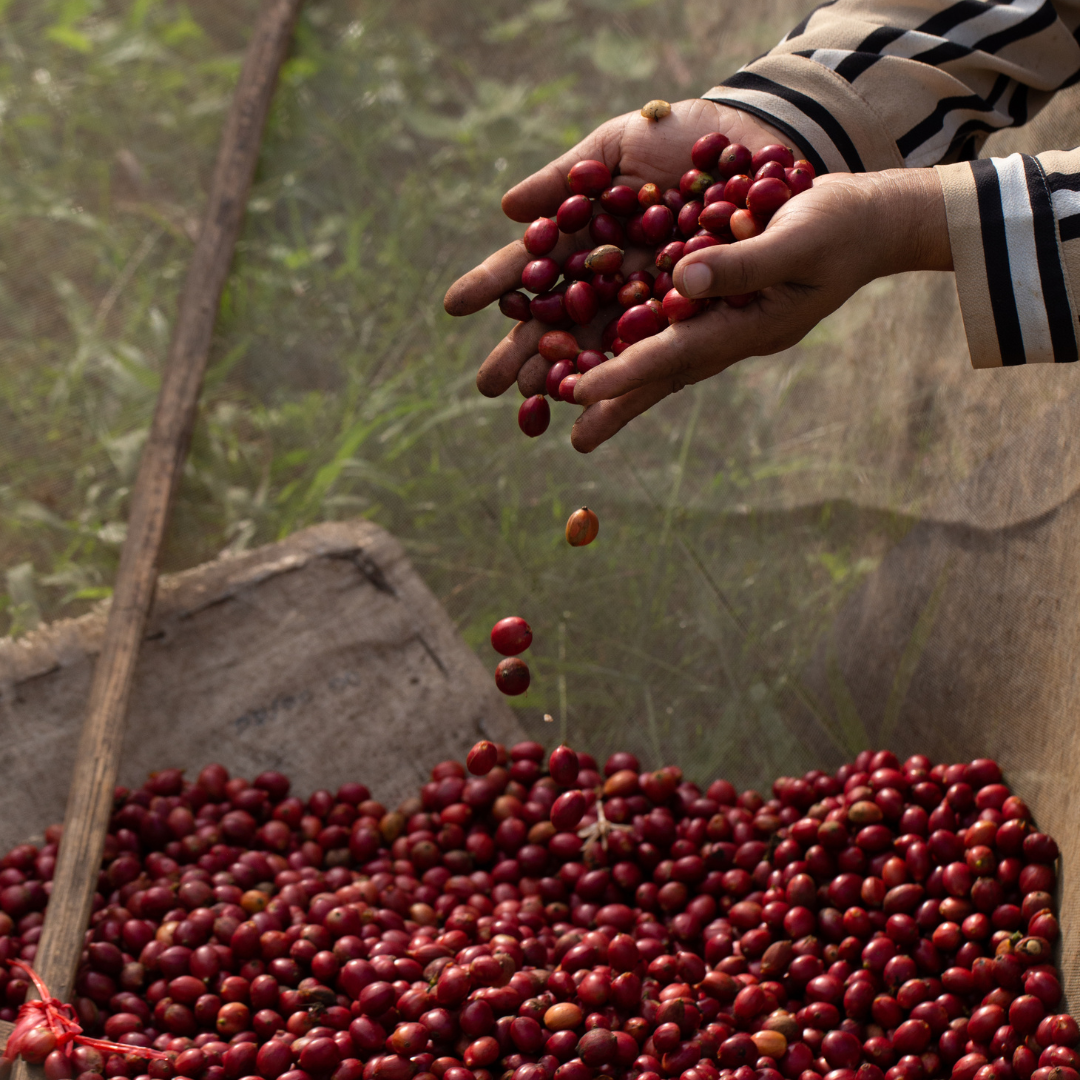
The journey from bean to cup
Before the coffee hits your cup, those dark, delicious coffee beans of joy go on quite a journey. After the red cherries are picked, they are processed by milling, washing and drying the cherries to extract the inner green beans. Once the green beans reach the roastery, they are transformed into the brown beans that are ground and brewed into the beloved cup of coffee we all cherish.
From ensuring fair wages for farmers to collaborating on planet-friendly growing practices and prioritising sustainability in the roasting methods, every step of the supply chain warrants careful scrutiny to genuinely claim ethical credentials. As coffee enthusiasts, understanding this journey allows us to appreciate not only the rich taste but also the ethical considerations embedded in each cup we enjoy.
Beyond the Brew: Unveiling the Environmental Impact of Coffee Roasting
Every step along the coffee supply chain presents its own environmental challenges, and the roasting process is no exception. Roasting coffee releases particulate matter and toxic compounds that can significantly impact air quality, prompting legal requirements for emissions controls and air permits for roasters of a certain size. Additionally, roasting coffee beans demands a substantial amount of electricity, contributing to carbon emissions.
Roasting 1 kilogram of beans can produce up to 2.9 kilograms of CO2e.
At Indigo Valley Coffee, we are proud to offer authentically carbon-neutral, award-winning coffee. Our commitment goes beyond offsetting emissions – we actively reduce and capture emissions through our unique air-roasting process. Our end-to-end process is externally audited and verified in collaboration with Carbon Neutral Britain.
Achieving carbon-neutral coffee roasting for six years, and operating as a carbon-negative business, we still acknowledge there’s more to be done. With aspirations towards achieving even greater sustainable practices in our business, we invite you to join us in making your daily dose of coffee not only enjoyable for you but also for the planet.
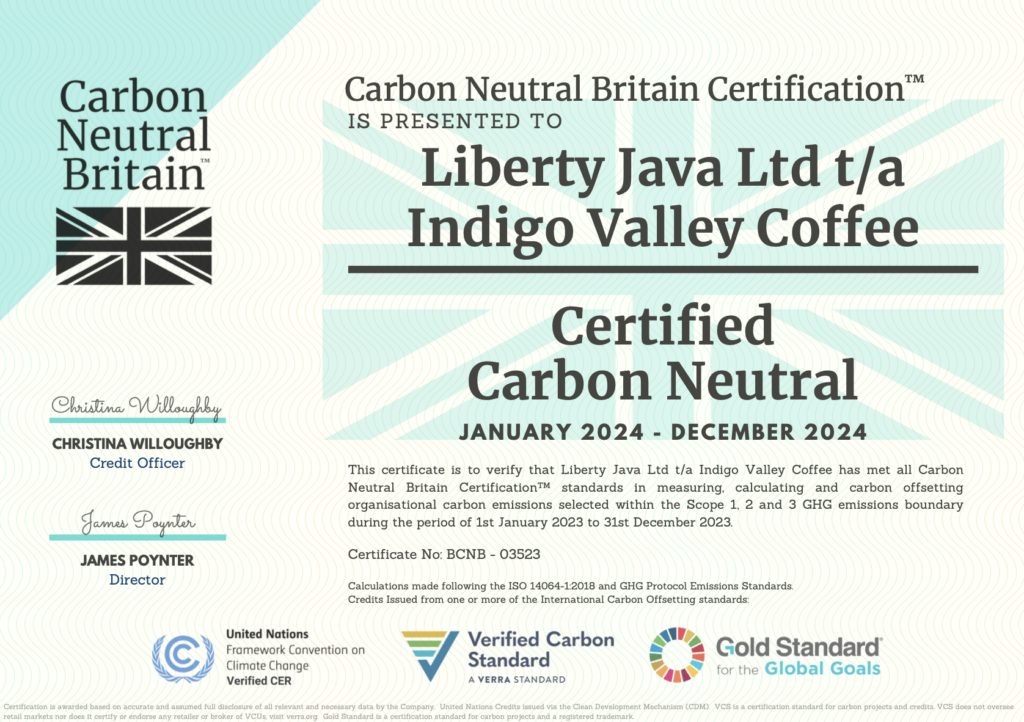
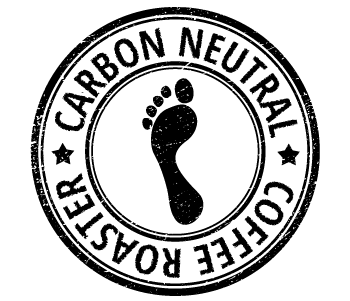
An ethical partner every step of the way
To protect the future of coffee for all, we must be aware of what we’re purchasing, sourcing, buying and consuming. Whether you’re a café owner, a facilities manager or simply searching for an ethical subscription gift, join Indigo Valley Coffee and take a small step towards sustainability that will benefit people and the planet.
We’ve even got a handy carbon calculator to help you find out the estimated impact of your current daily coffee consumption.
For more information on how Indigo Valley Coffee can help you, call us on 0333 222 4020 or email us at [email protected]

Interested in more?
Looking for more articles about coffee and coffee equipment from Indigo Valley? Why not view our archive of posts and articles for everything you need to know about coffee.
